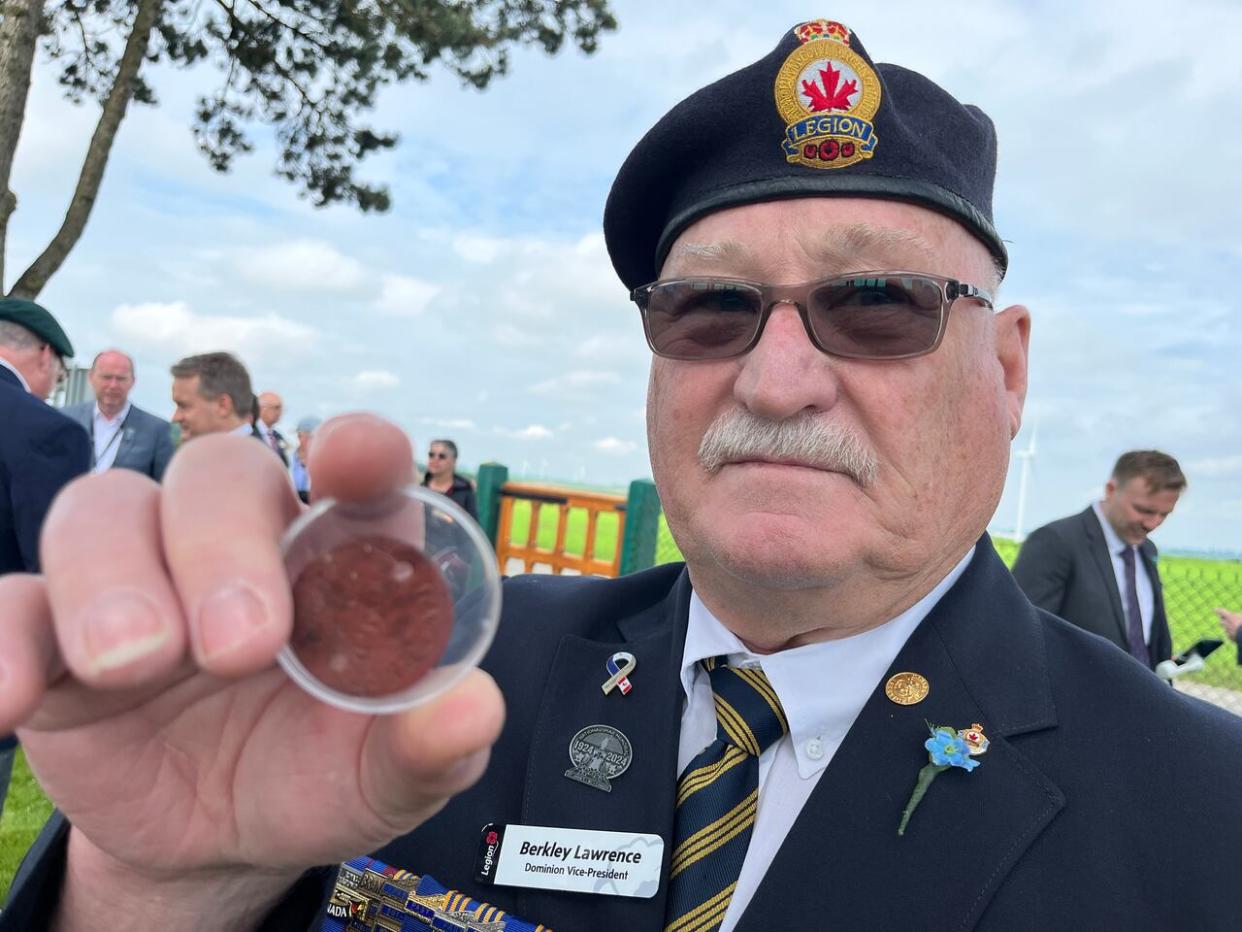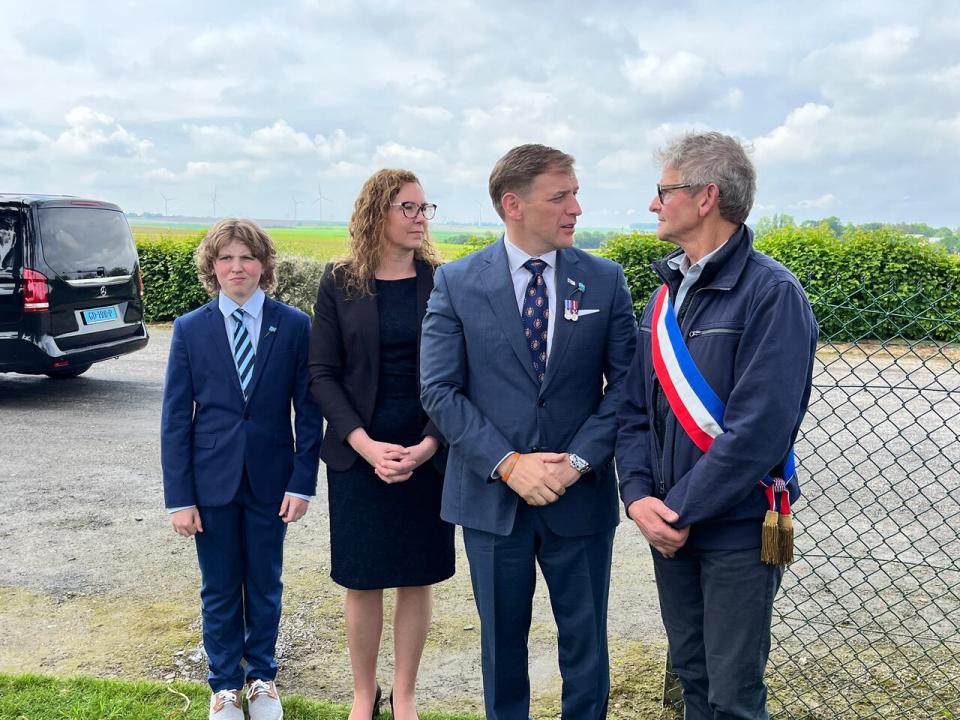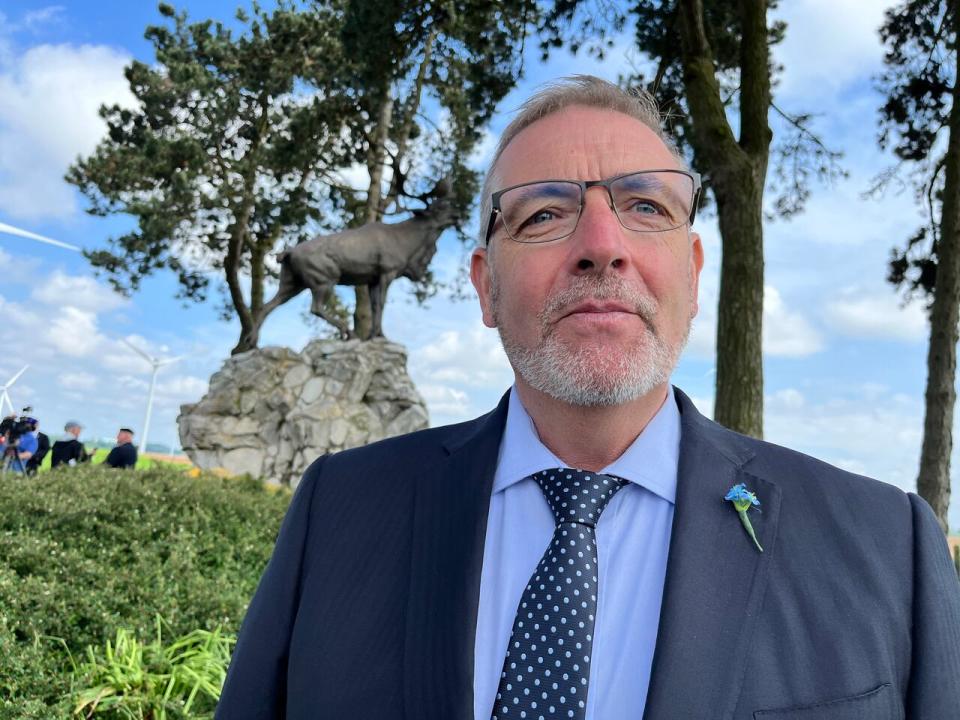He once guarded the unknown soldier in Ottawa. Now he is championing N.L.'s unknown


Berkley Lawrence holds a First World War identity disc that belonged to his grandfather, Stephen Lawrence, who was wounded at both Beaumont-Hamel and Gueudecourt. (Terry Roberts/CBC)
When a tomb of the unknown soldier is established at the National War Memorial in St. John's on July 1, Newfoundland and Labrador will become the first sub-national government in the Commonwealth to do so.
It will also be a unique achievement for Berkley Lawrence, because it will be the second time that this veteran and legionnaire from Carbonear, in Newfoundland's Conception Bay, will have been involved with such a special project.
Nearly a quarter-century ago, when a tomb of the unknown soldier was being established at the National War Memorial in Ottawa, Lawrence was a serving member of the Canadian Armed Forces.
A call went out to his unit, asking for volunteers to stand guard over the tomb, and Lawrence raised his hand. He then spent many meaningful hours as a sentinel over the Ottawa tomb.
"Here we are, doing it again. I don't know how many others have done that. But I'm going to get to do both," an emotional Lawrence said following a remembrance ceremony on Friday morning at the Gueudecourt Newfoundland Memorial in northern France.
Twenty-four years after his service in Ottawa, Lawrence and a band of other legionnaires like Frank Sullivan and Gary Browne have been working toward the creation of a similar tomb in St. John's.

Premier Andrew Furey met Friday with Damien Guise, right, mayor of Gueudecourt. The community was the site of a major First World War battle involving the Royal Newfoundland Regiment. Furey was accompanied by his wife Alison and their son, Mark. (Terry Roberts/CBC)
But just how did Lawrence and others get the green light for such a project, when at one point, said Lawrence, they received a firm no from Veterans Affairs Canada?
The idea began circulating about six years ago, when some legionnaires quietly pitched the concept to St. John's South-Mount Pearl MP Seamus O'Regan, who was then the minister of veterans affairs. Lawrence said O'Regan was intrigued.
However, O'Regan was shuffled out of veterans affairs in early 2019, a global pandemic arrived in early 2020, and the idea was also shuffled to the back burner.
'We're going to do this'
But the momentum returned a few years ago when Lawrence says he was able to bend the ear of Steve Crocker, MHA for Trinity-Bay de Verde, and the current minister of tourism, culture, arts and recreation.
Crocker was on board, and a few weeks later had a meeting with O'Regan's successor in veterans affairs, Lawrence MacAulay.
"I explained to him what it is we wanted to do and he just sat back in his chair and said, 'we're going to do this,'" Crocker recalled during an interview Friday in France.

Culture Minister Steve Crocker was an early supporter of a tomb of the unknown soldier for the Newfoundland National War Memorial in St. John's. (Terry Roberts/CBC)
Crocker also arranged for Lawrence, Sullivan and Browne to meet with Premier Andrew Furey.
The legionnaires came into the meeting with thick binders of information. They also had a strategy: request provincial money to help refurbish the grounds of the war memorial, and if the premier was warm to the idea, to then also pitch the idea of bringing home an unknown soldier from northern France to become the centrepiece of the refurbishment.
"The premier just said, 'what do you want?' I said, well, we need money," Lawrence recalled. "And he said 'OK, whatever you need, you got it.'"
Lawrence said Sullivan then asked Furey to help make the unknown soldier tomb a reality.
"[He] told the premier, you're the man to make it happen, if you write a letter to the prime minister and the minister of veterans affairs, and who knows. And here we are," said Lawrence.
The process moved quickly after that, with various players, including the Commonwealth War Graves Commission and the Canadian Armed Forces, offering their full support.
The provincial and federal governments also opened their treasuries, spending millions to refurbish the war memorial and expropriate a neighbouring property in downtown St. John's, and fund what the military is calling Operation Distinction, which is the pilgrimage to France by a large delegation this week to take part in repatriation events.
"This is a very special moment in time for the people of Newfoundland and Labrador," said Crocker, "one that's been a long time coming."
Download our free CBC News app to sign up for push alerts for CBC Newfoundland and Labrador. Click here to visit our landing page.

 Yahoo News
Yahoo News 
